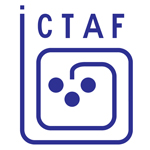Yossi Shacham's Interview
Prof. Shacham is the head of the department of electrical engineering- physical electronic at Tel-Aviv University, the founder of the Microtechnology TAU lab and previous head of the Nanoscience and Nanotechnology center at TAU. He specializes in nano interconnects and Nano-Bio interface. A founder of three start up companies based on TAU developed technology. Main research topics: bio-sensors, water toxicity, cancer cell identification, protein surfaces, nanoelectrodes for human brain applications, MEMS applications, ULSI interconnects, and Nano-bio interfacing – whole cell biochips, interfacing methods for lab-on chip with optical or electrochemical signals.
Q. Can you envision major developments in your field that could be considered as wild cards that are particularly relevant to the EU research and/or may dramatically affect the ERA vision?
I can envision several significant developments:
Remote sensors used for active manipulation, biological sensors as stand alone decisive creatures, electrode needles coated with various, and "smart dust" sensors for various applications.
All the above are extremely relevant to the EU public health, homeland security, of life and survival of minor and major ethnic groups and countries.
The remote sensing could detect and prevent poisoning of water, chemical pollution, etc.
Electrode needles coated with various substances could be applied for medical care, but also could be abused as weapons.
The remote sensing and remote manipulation could identify or detect various DNA and create a reaction or various activation accordingly. Dust of needle electrodes could be combined with remote sensing as activation or manipulation factors.
Q. What will be the dramatic impact of the developments you mentioned, and how it should be addressed by future research? In which field?
The dramatic impact could be loss of control, for example, of the sensor activities.
Once the sensor could be abused and activated to change its mode of sensing or even to alter the environment – it could cause a real harm. It could badly affect the human being everyday life as well as causing harm to human body and its surroundings. It may cause a broad range of security issues: personal security, homeland security as well as security at the EU level.
Q. What are the weak signals that (if detected) could hint at a growing likelihood (or imminent realization) of the wild cards that you mentioned?
Actual demonstration of technologies capabilities such as DNA and Protein Chips manipulation, remote manipulation of sensors, massive grouping of sensors, creation of "dust" nanoelectrodes, nanoneedles electrodes.
Q. What are the related topics that should be given top priority in the EU research?
Regulation and control of sensors and sensing machines at the human environment, DNA manipulation, air pollutants at the broad band.
Interviewer (Institution)

ICTAF - Interdisciplinary Centre for Technological Analysis & Forecasting (Israel) - Founded in 1971 at Tel-Aviv University, the major university in Israel, ICTAF is a leading institute in technology foresight, technology assessment and policy-support research. Its main mission is to help policy-makers reach informed decisions based on technology's role in economy and society and to serve as a think-tank for future policy planning. The multidisciplinary center taps the expertise of world-class scientists at Tel-Aviv University and other research institutions to create a core body of researchers with deep knowledge in a diverse range of fields. Its clients include governmental departments, hi-tech industries and international organisations. ICTAF researchers are involved in a wide range of subjects with special attention to issues related to emerging technologies and their impact. ICTAF has led the Israeli Foresight Study towards the 21st century, covering all leading science and technology fields in Israel. Other studies dealt with Nanotechnology, Quantum technologies, security-related technology assessments, and emerging trends in e-Government, Knowledge Management, education, employment and leisure. ICTAF is very active in the international community and has participated in several EC-funded projects, as a coordinator or as a workpackage leader. Recent examples are a Foresight study in the EU network of excellence “Nano-to-Life” (future developments in Nanobiotechnology), coordination of the FP6 project ELOST (which includes foresight on the future of e-Government), major workpackages in the FP5 project KINX (Knowledge Management solutions for SMEs), a leading role in the FP5 project e-Living (“Life in a Digital Europe”), and the EU project “Platform Foresight” (public research policies and priorities in Europe).
iKNOW has been featured in the media and several research projects:
DIE ZEIT (Germany), Financial Times (Germany), El Heraldo (Colombia), Prospective Foresight Network (France), Nationalencyklopedin (Sweden), EFP - European Foresight Platform (EC), EULAKS - European Union & Latin America Knowledge Society (EC), CfWI - Centre for Workforce Intellience (UK), INFU - Innovation Futures (EC), Towards A Future Internet (EC), dstl - Defence S&T Laboratory (UK), EFSA - European Food Safety Agency (EU), Malaysia Foresight Programme (Malaysia), Bulletins Electroniques more...